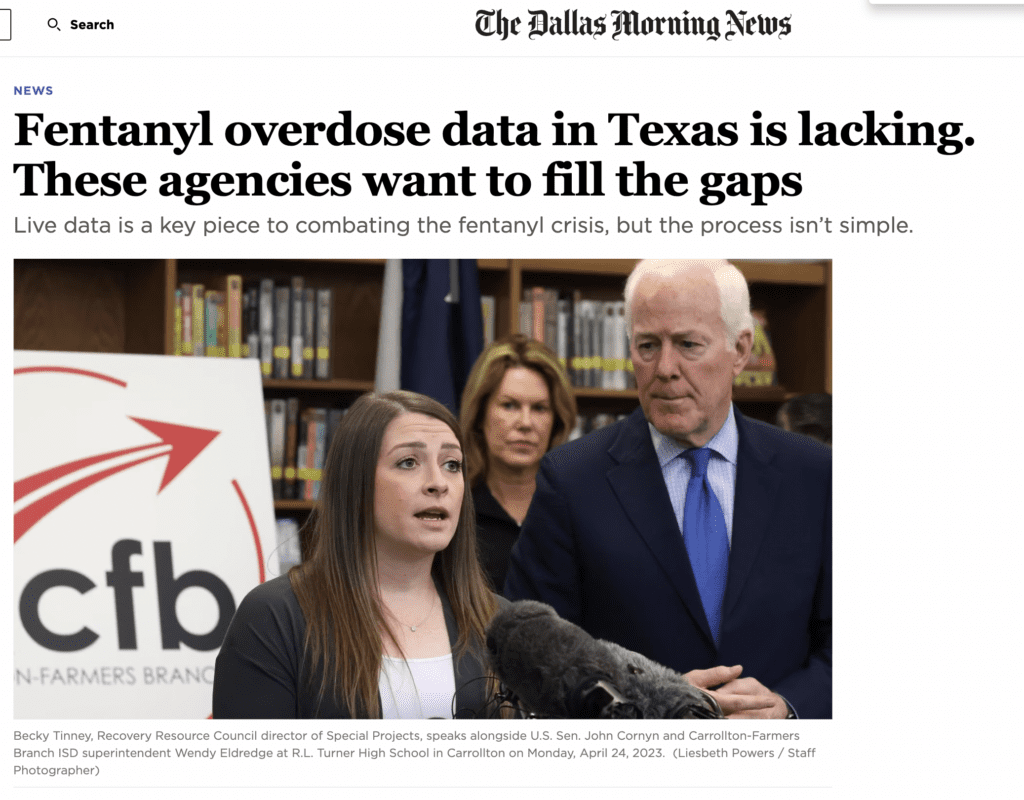Generating systemic change along the addiction recovery continuum
TxCOPE in the News – Dallas Morning News Fentanyl Series
In a new feature from The Dallas Morning News, TxCOPE’s lead researcher Dr. Kasey Claborn was quoted in her efforts to help bring TxCOPE’s mission across Texas, serving as a front-runner in overdose data tracking which helps overdose prevention agencies report and track overdoses in their community.
Read the full article here and catch the entire fentanyl series from DMN here.
‘Front-runner at a national level’
The delay in information hurts preventative efforts. Real-time reports enable officials to step in and try to fend off a spike in overdoses from a “bad batch” of drugs, Burrell said.
Earlier this year, Texans Connecting Overdose Prevention Efforts partnered with organizations in Dallas to fill those gaps.
TxCOPE has a digital reporting and surveillance system that collects overdose data throughout the state. The platform, created at the University of Texas at Austin, was launched in 2021 and rolled out statewide in March.
Most of the information comes from community organizations, but the public can submit reports anonymously. This direct reporting circumvents the long wait for records and toxicology reports.
“Those individuals who are working with people who use drugs and are doing outreach, they’re front-line workers,” said Kasey Claborn, lead researcher on the TxCOPE project and assistant professor at UT. In combination with traditional data sources, their reports help TxCOPE target danger zones and alert local agencies who can respond.
Other ways to trace the rise in fentanyl in communities include tracking where naloxone is distributed, Claborn said.
An array of data is key to allocating resources and figuring out what works, Claborn said.
“When we do this in Texas, we’ll be the front-runner at a national level in setting the model for how to collect real-time data, which is really exciting.”
For real-time data collection to become standard practice, Claborn said, elected officials would need to create policies mandating overdose reporting from community outreach programs, first responders, health providers and schools, among others.
“This will expedite scaling across Texas and improve the robustness of real-time data for key opioid- and overdose-related metrics,” she said.
As for making the data public, Claborn said, there are ethical concerns surrounding the release of certain information.
“To date, the consensus is that we will likely have some of the data presented to the public,” she said.


